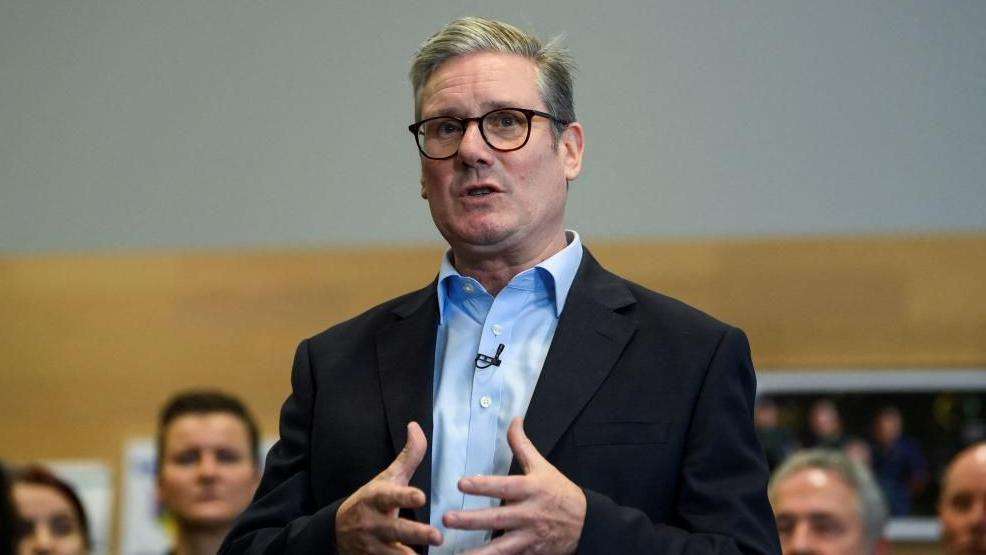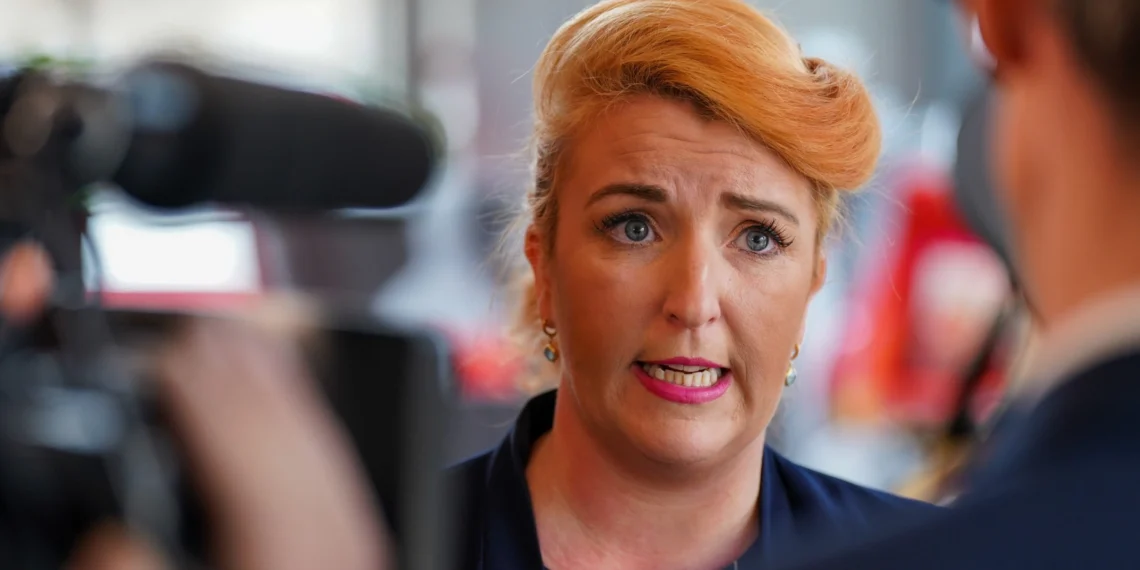The UK government is bracing for potential food shortages as thousands of farmers prepare to protest and even strike over the controversial “family farm tax.”
During an interview, Transport Secretary Louise Haigh revealed that the government has emergency plans to address the food supply chain if farmers halt production. This threat has raised alarms about empty shelves and potential panic-buying similar to the early days of the COVID-19 pandemic.
Farmers are set to descend on London on Tuesday, November 19 to voice their outrage against the newly announced 20 percent inheritance tax on family farms valued at £1 million or more. They argue the tax will devastate family-owned farms across the UK, forcing many to sell or break up their land.
More significantly, some farmers are now calling for a full production strike to underscore the consequences of the tax on the nation’s food supply.
Haigh defended the government’s stance, explaining that her department, in collaboration with the Department for Environment, Food and Rural Affairs (Defra), is already working on contingency plans for the winter. She stressed that “business as usual” preparations are being undertaken to ensure “food security is treated as the priority it deserves.”
Heated Reaction from Farmers and the NFU
Farmers’ leader Gareth Wyn Jones, a popular YouTuber and prominent voice in the rural community, expressed disbelief at Haigh’s admission of contingency plans, calling it “unbelievable.”
Wyn Jones attended a protest on Saturday in Llandudno, where Prime Minister Keir Starmer addressed the Welsh Labour conference but reportedly avoided addressing the farmers directly.

Wyn Jones accused Starmer of “fleeing out of the back door like a flipping rat” after the prime minister sidestepped discussions with farmers and instead focused his speech on defending Labour’s recent budget announcement. The speech notably included a firm stance on the controversial measures within the budget, including the family farm tax and increased employer national insurance contributions, which have sparked widespread discontent among farmers.
Defending the budget, Haigh said Starmer had delivered “a defense of the Budget” at the conference and emphasized that Labour officials had “not come into power to levy taxes on farmers.” Haigh, who has family ties to the agricultural community, insisted the tax is “fair and proportionate.”
NFU President Urges Dialogue, Condemns Strike Plans
The president of the National Farmers’ Union (NFU), Tom Bradshaw, also appeared on Sky News to address the mounting tension. While he opposed the proposed tax, Bradshaw discouraged the idea of a food supply strike, stressing that “emptying supermarket shelves” is not an action the NFU supports.
Reflecting on the impact of food shortages during the COVID-19 pandemic, Bradshaw reminded viewers that those most affected by supply disruptions included vulnerable individuals and essential workers, such as nurses. “That is something we do not want to see again,” he added, calling for the government to engage in dialogue with farmers.
“This is in the government’s control,” Bradshaw noted, urging officials to “sit down, talk to us, and work a way through this.” While the NFU does not condone a halt in food supply, Bradshaw acknowledged the frustration farmers feel, particularly given the substantial investments they make in their businesses, often in preparation for passing them on to the next generation.
Rising Costs and Food Security Fears
Addressing concerns over the family farm tax, Bradshaw highlighted the substantial financial burdens farmers already face. Rising national insurance rates, along with increases in the national living wage, are pushing food prices higher, he said, calling these new budget measures “inflationary for food production.”
He warned that the family farm tax would further limit agricultural investments, potentially destabilizing food production and undermining food security in the UK.
Bradshaw also responded to questions about why family farms should receive exemptions from inheritance tax when the assets involved often exceed the value of an average family’s income.
As farmers prepare to protest, and with some even calling for a halt to production, the government faces a critical moment to address the concerns of an industry essential to the UK’s food supply.
READ ALSO: EC to Reprint Ballot Papers Over Incorrect Serial Numbers



















